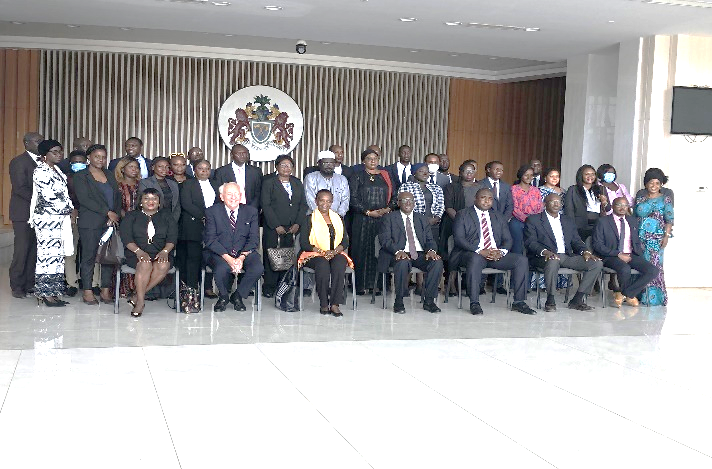By: Nyima Sillah
The Judiciary of The Gambia in partnership with the American Bar Association Rule of Law Initiative Tuesday, 15th March 2022, began a two-day judicial forum on International Criminal Justice and Comparative Experiences, held at Sir. Dawda Kairaba Conference Centre.
The objective of the colloquium is said to enhance the capacity of the Gambian judicial system to fulfil its expected role of pursuing international justice and providing redress for crime committed during the previous regime.
Honourable Dawda Jallow, Attorney General and Minister for Justice said following the enactment of the Truth Reconciliation and Reparations Commission Act 2017, the President of The Gambia on October 15, 2018 appointed and swore-in eleven commissioners of the TRRC.
According to the Justice Minister, the main objective of the TRRC was to create an impartial historical record of violations and abuses of human rights from July 1994 to January 2017.
“I must hasten to assure you all that the government is committed towards ensuring that the victims of human rights violations during the period under review not only get justice but are adequately compensated for all manner of injuries caused to them by the former regime,” he added.
Chief Justice, Honourable Assan B. Jallow, also said this colloquium supported by the American Bar Association is among many interventions being supported in partnership with the judiciary as the clear mandate emanating from the TRRC report has highlighted public expectations on the delivery of justice from the judicial arm of government.
He noted that the colloquium will provide a platform for interaction between members of the bench, international and regional experts but also between members of the bench themselves as it aims to be a peer-to-peer forum.
“The Gambian judiciary has played a crucial part in upholding the fundamental rights of citizens as enshrined in the constitution and other regional/international mechanisms,” he said.
However, he added that ensuring justice for almost two million people in the context of transitional justice might be a challenging task, primarily because the Gambian judiciary has never had to deal with issues such as the one they may face following the publication of the government white paper.





